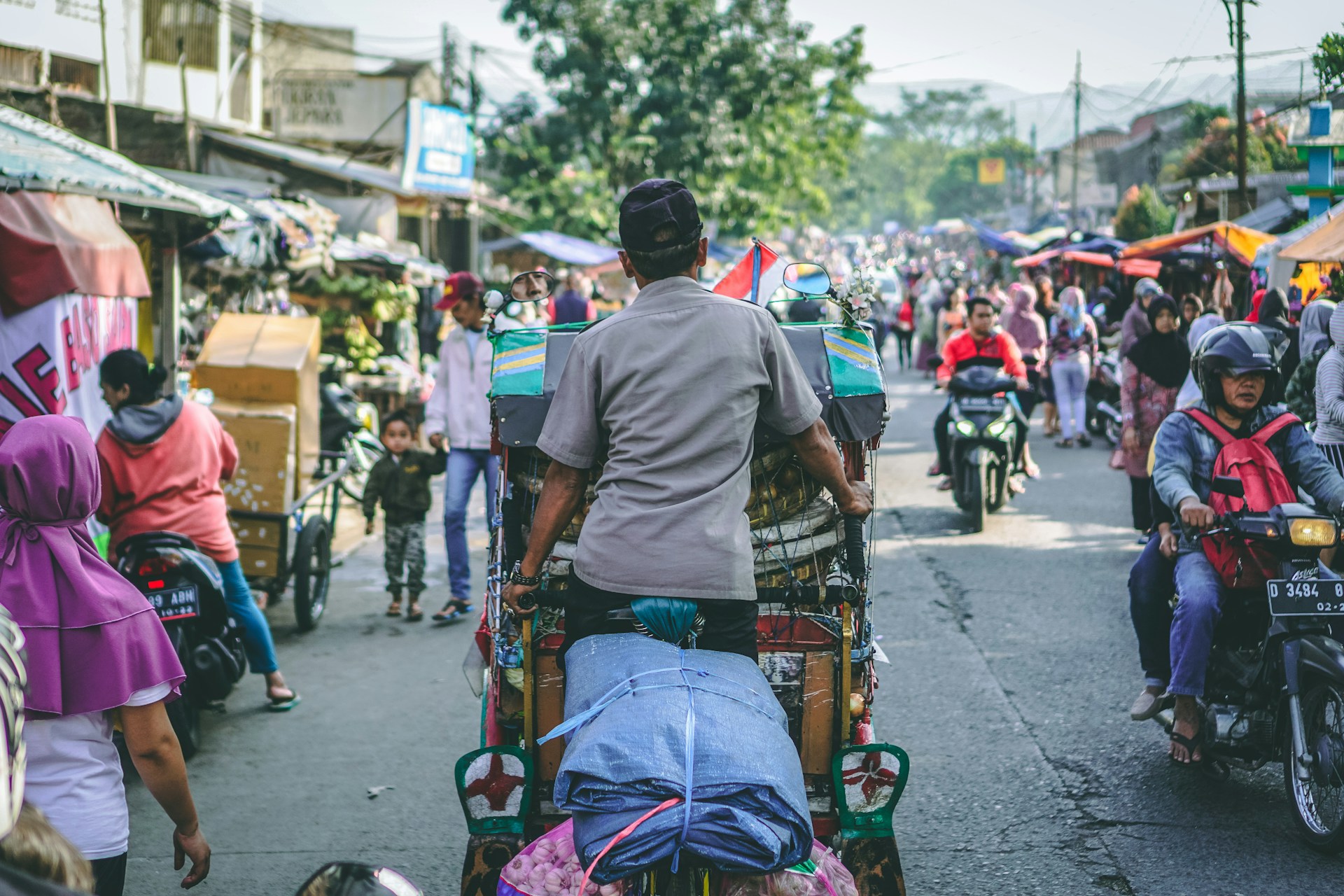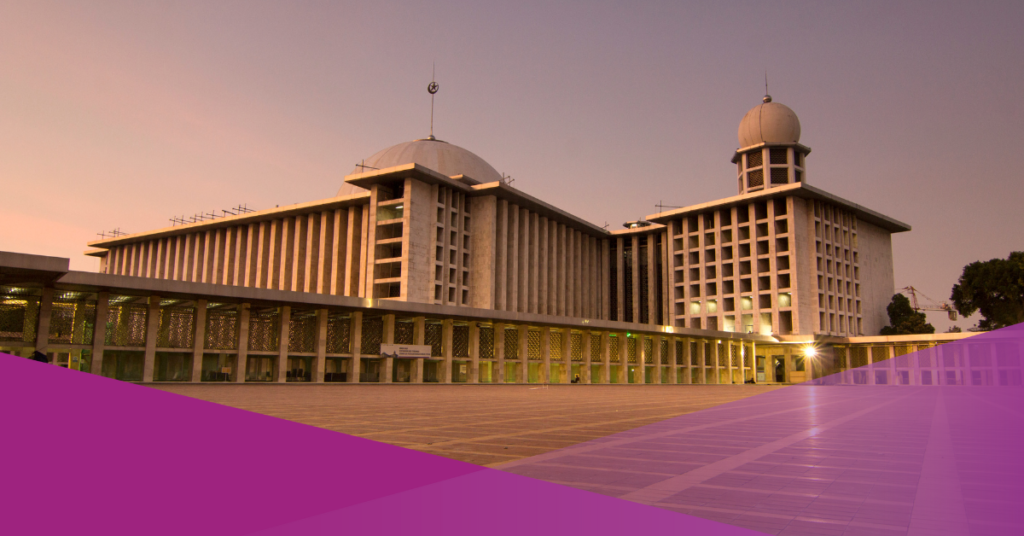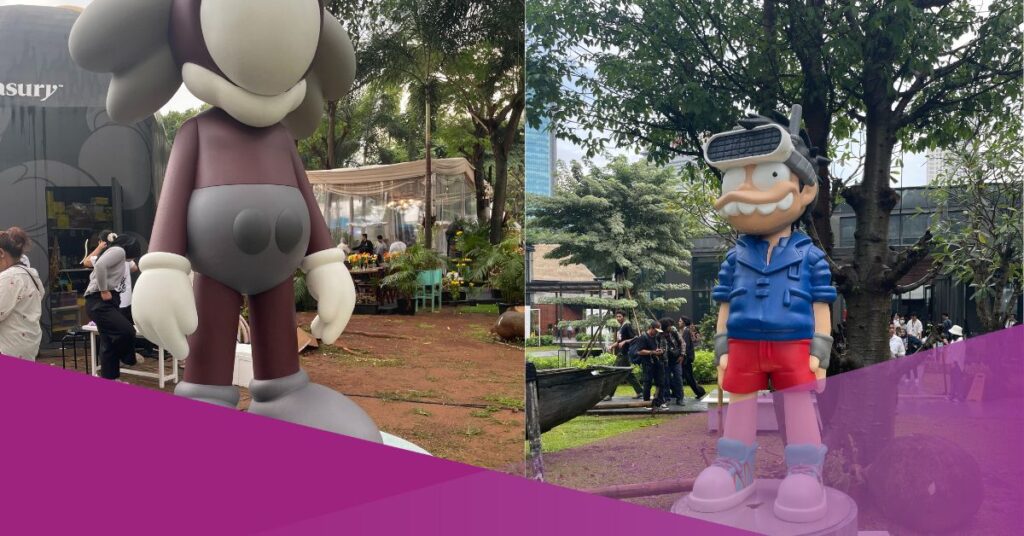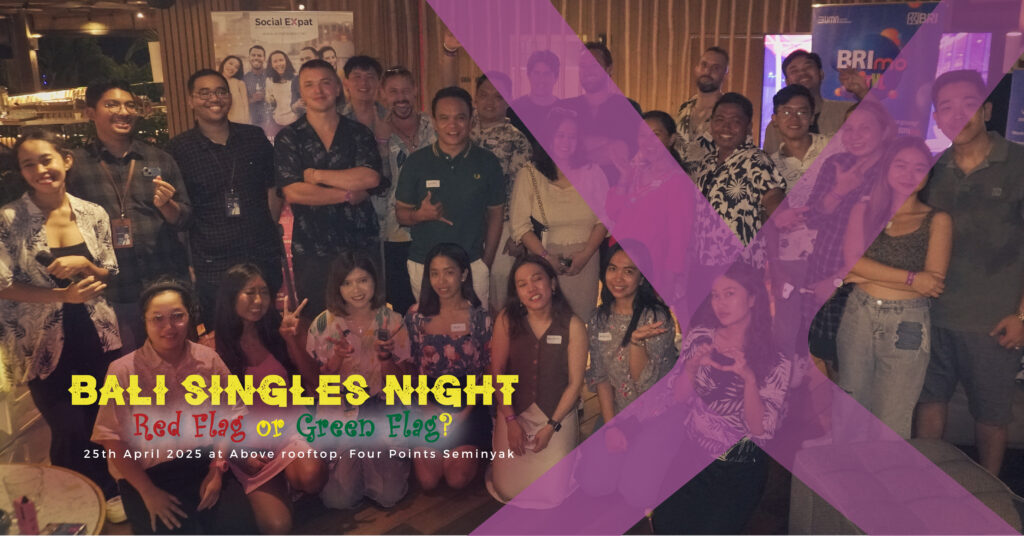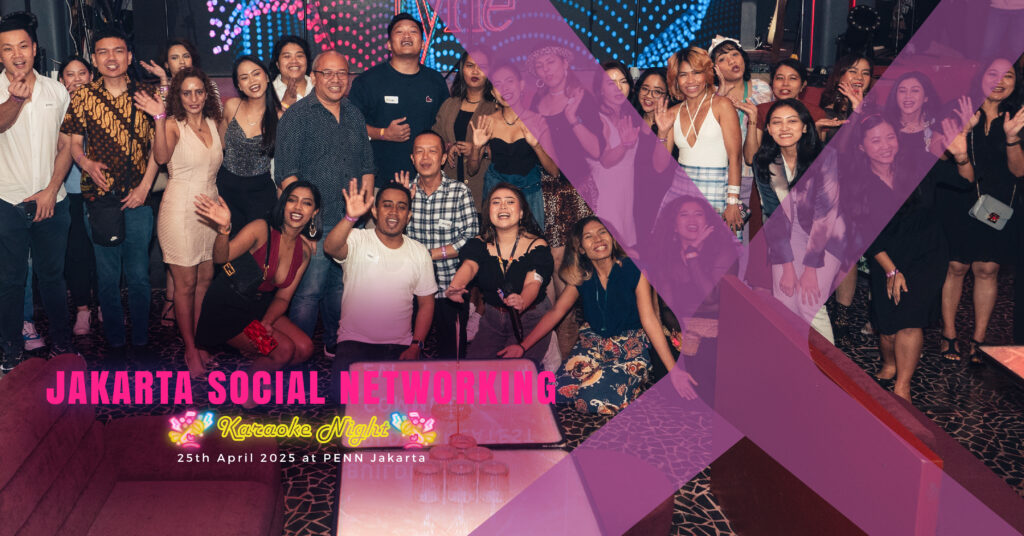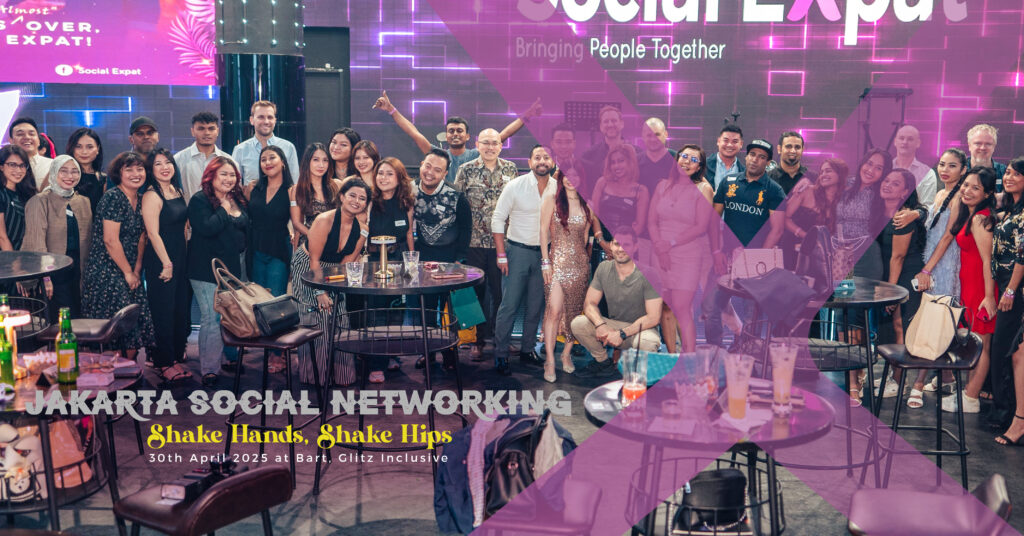Exchanging numbers with people you meet during your travel journey to another country works well for fostering good connections, allowing wider opportunities to acquire your personal local guide while visiting the country in the future.
And just like spoken conversations, texting with your friends through messengers also has its own conversational terms and slang.
In Indonesia, it applies the same that people tend to use easier daily terms, or internet slang, to help them communicate better through text.
You would not want to miss the chance to immerse yourself more in Indonesia’s local culture and gain tons of local friends. To that end, having to understand how to speak the local language is essential.
Once you start interacting directly with native Indonesian speakers, at some point, you will have to incur different expressions that your average dictionary won’t know the meaning of.
This article is a handy guide to help you understand some of the popular Indonesian slang words to help you sounds cool while texting your Indonesian friends using Bahasa Indonesia!
- Source: Austin Distel on Unsplash
What is Internet Slang?
Internet slang, also known as online slang or chat slang, refers to a collection of informal and abbreviated language expressions used in online and digital communication.
It results from the speed and the unstructured nature of conversations on the Internet, because speed and briefness are paramount. Besides, it is applied in all parts of Southeast Asia, such as Malaysia, Singapore, Indonesia, and the Philippines.
The Malay language spoken in Malaysia, Singapore, Brunei, and parts of Indonesia is one of those languages highly influenced by internet slangs in the region.
Internet slang is used within social networks, instant messaging, online forums, and other virtual chat services. This genre of sub-language can be used in casual conversations with friends; it may be applied for the purpose of sharing opinions and emotions and taking part in Internet memes and fads.
What is Indonesian Slang?
Like any other language, an Indonesian word can be made into a whole different word that does not exist in the Indonesian-English dictionary.
These terms are usually called slang, internet slang, or texting slang, which replaces the role of official language in daily conversation. The Indonesian slang often then evolves to adjust accordingly to every generation.
Many new words or slang are being created and become viral fast because of massive social media use.
Because Indonesian can typically be understood without the help of complete grammatical prefixes and suffixes, abbreviations and shortenings become popular for either formal or informal use. As the meanings become more complicated, affixes appear, and the words become lengthier.
When it comes to texting, Indonesian people are mostly obliged to use shortened word phrases due to the limited characters provided by messenger service providers.
Back then in the early 2000s, the service providers applied cost per character for every SMS (Short Message Service) that did not exceed 160 characters. This forced people to be very creative with every phrase spoken throughout the text message.
Also known as “bahasa gaul”, the collection of informal and colloquial speech expressions is now familiar in everyday conversations spoken in Indonesia, especially for youth and in informal Indonesian settings. It is characterized by its dynamic nature, creativity, and the incorporation of various local and foreign influences.
- Source: Fikri Rasyid on Unsplash
Some popular Internet slang in the Indonesian Language
- Wkwk: “Wkwk” is a written expression used to indicate laughter or amusement in online conversations. It is similar to “LOL” in English. “Wkwk” represents the sound of laughter, and it is commonly used to express joy or amusement in online interactions.
- Mager: “Mager” is an abbreviation of “malas gerak” which translates to feeling lazy or lacking motivation to do something. It is often used to describe a state of laziness or unwillingness to engage in activities.
- Mantul: “Mantul” is derived from the word “mantap” which means excellent or fantastic. It is an expression used to convey approval or excitement about something. It is similar to saying “awesome” or “great” in English.
- Sip: “Sip” is a slang term that originates from the word “setuju” which means “agree” or “okay.” It is commonly used to indicate agreement or acceptance of a proposition or suggestion.
- Kuy: “Kuy” is an abbreviation of “ayo pergi” which translates to “let’s go.” It is a slang expression used to invite someone to do something together or to encourage action.
- Bete: “Bete” refers to a feeling of annoyance, frustration, or being fed up with something or someone. It is often used to express irritation or displeasure.
- Baper: “Baper” is an abbreviation of “bawa perasaan” which means being emotionally affected or sensitive about something. It is commonly used to describe a state of being emotionally touched or affected by a situation, often in an exaggerated or melodramatic way.
- OTW: in Indonesia, “OTW” is an abbreviation of “on the way.” It is often used to indicate that someone is en route or in the process of going somewhere.
- BTW: “BTW” stands for “by the way” and is used in Indonesian slang in the same way as in English. It is used to introduce an additional piece of information or to change the topic of conversation.
- Sokin aja: “Sokin aja” is a slang phrase in Indonesia that means “just support.” It is often used as an expression of encouragement or to ask for someone’s support in a particular endeavour or situation.
- Kepo: “Kepo” is derived from the word “kepoh” which means being nosy or overly curious about someone else’s business. It is often used to describe someone who is excessively interested in other people’s affairs or seeking information about them.
- Gokil: “Gokil” is a slang term that means something is outrageous, crazy, or absurd in a positive way. It is often used to express amazement or disbelief in a lighthearted manner.
- Sotoy: “Sotoy” refers to someone who is acting or speaking in a pretentious or superficial manner, often showcasing knowledge or opinions without depth or substance. It is used to describe someone who tries to appear knowledgeable or sophisticated but lacks genuine understanding.
You may also like: Travelling to Indonesia? Learn These Useful Indonesian Basic Phrases For Any Travellers
Is Indonesian slang words also common in different dialects of the language?
Slang words are widely used in all dialects and varieties of Indonesian. Indonesian is the official language of Indonesia; it has a standardized form called “Bahasa Indonesia.” However, due to the huge linguistic diversity in the country, a lot of regional dialects and languages are also be used by the different ethnic groups.
These slang words crop up in the regional dialects and languages for informal communication and expression of culture. These slang words reflect the unique characteristics, vocabulary, and pronunciation patterns of each dialect. They can vary significantly from one region to another, adding color and richness to the local languages.
Local slang according to languages and dialects in Indonesia
Here is some local slang in different regions in Indonesia:
1. Bandung:
- “Ler” (okay, alright)
- “Geulis” (beautiful)
- “Muhun” (thank you)
2. Surabaya:
- “Larang” (no, not allowed)
- “Cak” or “Bro” (a term used to address a person, similar to “dude” or “bro”)
- “Ojok” (don’t)
3. Bali:
- “Puyeng” (confused, overwhelmed)
- “Meh” (come)
- “Ampura” (excuse me, sorry)
More about Indonesians Language and its importance
Indonesian is the national language of Indonesia, serving as a unifying factor in the grand population of the country. This language is universally spoken and comprehended throughout the country.
The Indonesian language belongs to the variety of Malay and is known by the name of Bahasa Indonesia. Historically, culturally related, Indonesia was similar to Malay, hence could be understood by the speakers of Malay.
Besides this, Indonesian has also been influenced by Javanese-considered to be the language from the island of Java-regarding its vocabulary and pronunciation.
Though Indonesian is the official language, local dialects and languages are used more often in regular communication. Nonetheless, knowledge of the basics of the Indonesian language enables one to communicate better and appreciate the richly diverse cultural heritage of Indonesia.
What Makes the Indonesian Language Unique?
The Indonesian language is unique for several reasons. There are over 300 native languages spoken by people in Indonesia aside from the Standard Indonesian.
Indonesian belongs to the Austronesian language family, which is one of the largest language families in the world. This classification sets Indonesia apart from its neighboring languages and gives it distinct characteristics.
Secondly, Indonesian has been heavily influenced by various foreign languages throughout its rich cultural heritage. For instance, Arabic and Sanskrit have influenced Indonesian slang to an extent that it has contributed to the language a lot of terms and phrases regarding religious, cultural as well as academic purposes.
The Dutch and Portuguese too have contributed much to modern Indonesian. This is because of colonization of the Portuguese, which, during this time, the Portuguese terms and grammatical phrases were incorporated into Indonesian.
These cross-cultural influences have made Indonesian an interesting blend of the native, borrowed, and adapted features that quintessentially make Indonesian reflect the rich historical and cultural tapestry of Indonesia.
How to Learn the Indonesian Language?
Indonesian can be learned both online and offline. Online, through language learning apps, websites, and courses, flexibility and convenience are guaranteed.
Offline approaches include attending classes or engaging in language exchange programs that offer valuable face-to-face interactions. From textbooks, dictionaries, and online communities, one has a wealth of learning materials at their fingertips.
Building Indonesian language skills takes time and requires regular practice. Activities such as watching Indonesian media, conversing with native speakers, and making realistic goals are helpful in reaching these goals.
Learning Indonesian has many advantages, including being able to communicate with Indonesians in an effective way, understanding Indonesia’s culture deeply, and developing wider educational and career opportunities.
While there may be some challenges such as grammar and pronunciation not in your native tongue, with perseverance and dedication, these obstacles can be overcome on the path to mastering the Indonesian language.
Learn Bahasa Indonesia through Networking
Learning Bahasa Indonesia through expat networking events can be a fun and rewarding way to improve the language while blending in and acquiring friends from the local community.
Social Expat’s Expat Networking helps expats in Indonesia engage in conversations with other expats and locals to improve knowledge and comprehension about Indonesia.
It is also an excellent platform to practice newly learned vocabulary and phrases in a supportive environment. You can find the list of our events on our Events Page.


